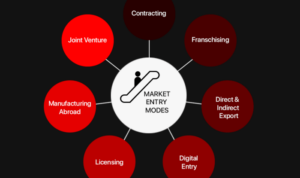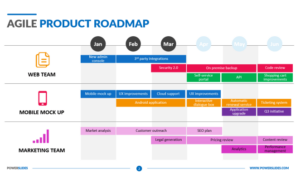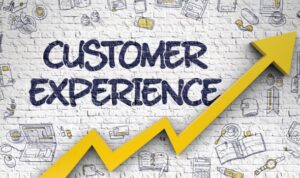Kicking off with E-commerce Growth Tips, this opening paragraph is designed to captivate and engage the readers, setting the tone for high school hip style that unfolds with each word. As businesses navigate the digital landscape, understanding the key strategies for e-commerce growth is essential for success. From leveraging technology to enhancing user experience, these tips are the stepping stones to skyrocketing your online business to new heights.
Importance of E-commerce Growth

E-commerce growth is crucial for businesses in today’s digital age as it provides a platform for companies to reach a wider audience, increase sales, and stay competitive in the market. With the convenience of online shopping, more and more consumers are turning to e-commerce for their purchasing needs.
Successful E-commerce Businesses
- Amazon: Started as an online bookstore, Amazon has grown into a global e-commerce giant offering a wide range of products and services.
- Alibaba: Known as the “Amazon of China,” Alibaba is a leading e-commerce platform connecting businesses and consumers worldwide.
- Etsy: Focused on handmade and vintage items, Etsy has created a niche market for artisans and crafters to sell their products online.
Impact on Global Economy
E-commerce growth has significantly impacted the global economy by creating new opportunities for businesses to expand internationally, increasing job opportunities, and contributing to economic growth. According to Statista, global e-commerce sales are projected to reach $6.54 trillion by 2022, highlighting the immense potential of this sector in driving economic development.
Strategies for E-commerce Growth: E-commerce Growth Tips
In the competitive world of e-commerce, it is crucial to have effective strategies in place to drive sales and grow your business. Let’s dive into some key strategies that can help boost your e-commerce growth.
Role of Digital Marketing in Driving E-commerce Growth, E-commerce Growth Tips
Digital marketing plays a vital role in the success of any e-commerce business. Utilizing various digital channels such as social media, email marketing, search engine optimization (), and pay-per-click (PPC) advertising can help increase brand visibility, attract more traffic to your website, and ultimately drive sales. By creating targeted campaigns and engaging content, you can reach your target audience and convert leads into customers.
Enhancing User Experience for E-commerce Growth
User experience (UX) is a critical factor in e-commerce success. A seamless and user-friendly website design, easy navigation, fast loading times, clear product descriptions, high-quality images, and secure payment options all contribute to a positive user experience. By focusing on enhancing the overall shopping experience for your customers, you can improve customer satisfaction, encourage repeat purchases, and ultimately drive e-commerce growth.
Leveraging Technology for E-commerce Growth
In today’s digital age, leveraging the latest technologies is crucial for the growth of e-commerce businesses. These technologies not only help in scaling operations but also enhance the overall customer experience.
Latest Technologies for Scaling E-commerce Operations
- Cloud Computing: Utilizing cloud services allows e-commerce businesses to easily scale their infrastructure based on demand, ensuring seamless operations during peak times.
- Big Data Analytics: By analyzing large volumes of data, e-commerce companies can gain valuable insights into customer behavior, preferences, and trends, enabling them to make data-driven decisions to optimize their operations.
- Internet of Things (IoT): Integrating IoT devices can provide real-time data on inventory levels, supply chain management, and customer interactions, streamlining processes and improving efficiency.
AI and Machine Learning for E-commerce Processes
- Personalized Recommendations: AI algorithms can analyze customer data to provide personalized product recommendations, enhancing the shopping experience and increasing conversion rates.
- Predictive Analytics: Machine learning models can forecast trends, optimize pricing strategies, and anticipate customer needs, helping e-commerce businesses stay ahead of the competition.
- Chatbots: AI-powered chatbots can provide instant customer support, answer queries, and guide users through the purchase process, improving customer satisfaction and reducing response times.
Importance of Mobile Optimization for E-commerce Growth
- Mobile Traffic: With the majority of online traffic coming from mobile devices, optimizing e-commerce websites for mobile users is essential to reach a wider audience and drive sales.
- Responsive Design: Ensuring that websites are responsive and mobile-friendly improves user experience, reduces bounce rates, and increases the likelihood of conversions.
- Mobile Payment Options: Providing secure and convenient mobile payment options encourages mobile users to make purchases, leading to higher conversion rates and customer retention.
Customer Engagement for E-commerce Growth

Customer engagement plays a crucial role in driving e-commerce growth as it helps businesses build relationships with their customers, establish brand loyalty, and increase repeat purchases. By actively engaging with customers, e-commerce businesses can create a personalized shopping experience, gather valuable feedback, and ultimately drive sales.
Effective Customer Engagement Strategies
- Utilize social media platforms to interact with customers, respond to inquiries, and showcase products.
- Implement a loyalty program to reward customers for their repeat purchases and encourage brand loyalty.
- Send personalized emails based on customer preferences and purchase history to enhance the shopping experience.
- Offer live chat support on your website to provide real-time assistance to customers and address any concerns promptly.
Personalized Marketing for Enhanced Customer Engagement
Personalized marketing involves tailoring product recommendations, promotions, and content to individual customers based on their preferences and behavior. This approach can significantly enhance customer engagement by making the shopping experience more relevant and enjoyable for the consumer. By analyzing customer data and leveraging technology such as AI and machine learning, e-commerce businesses can deliver personalized marketing campaigns that resonate with their target audience and drive growth.



